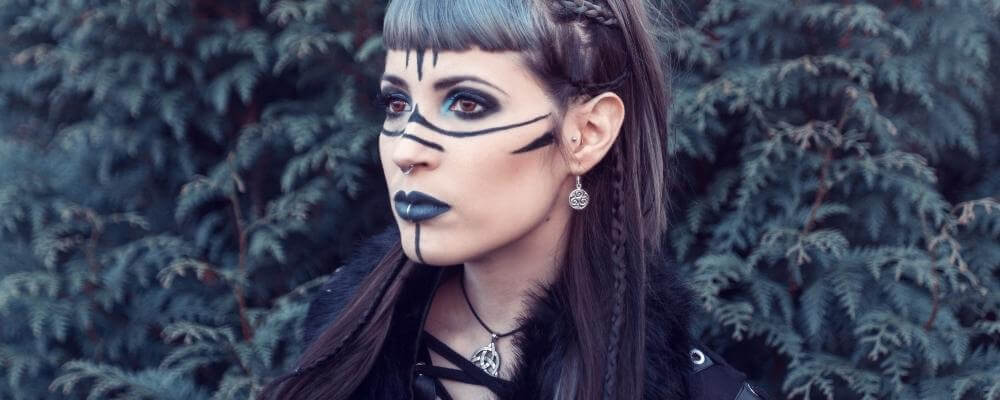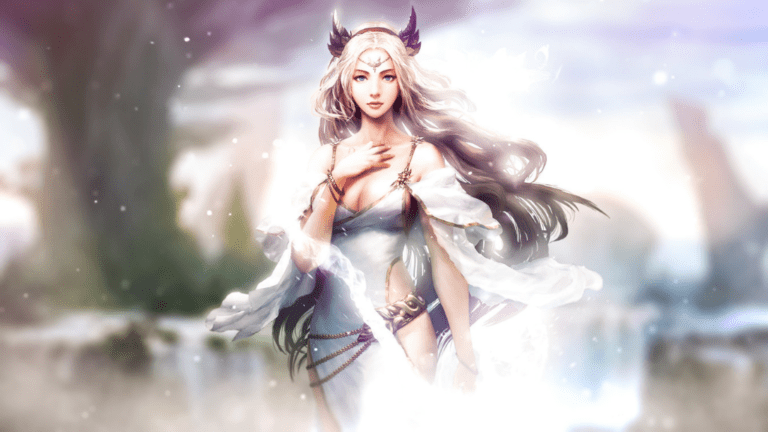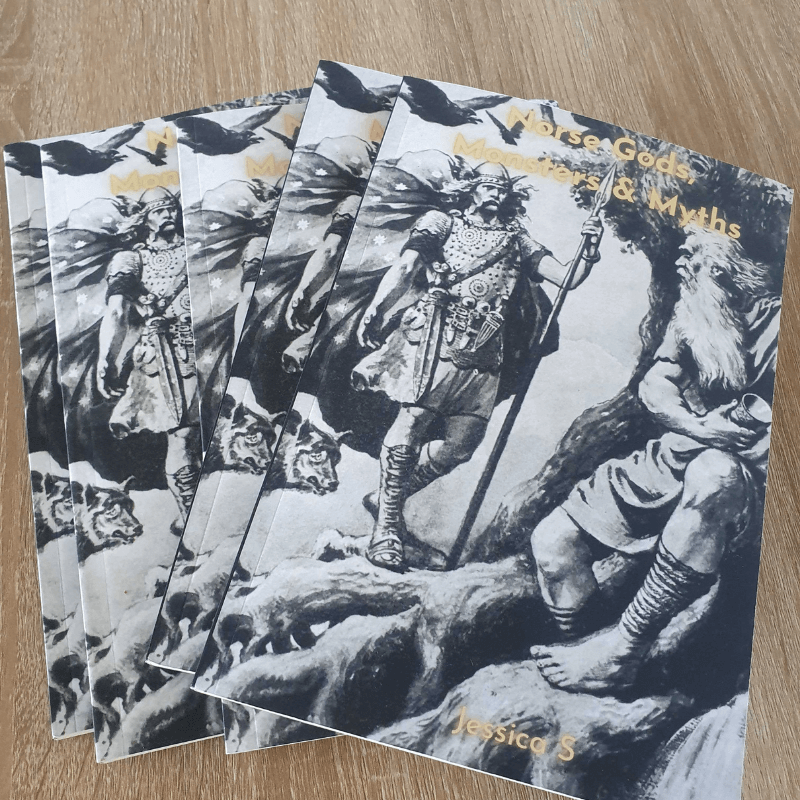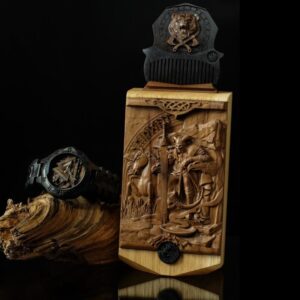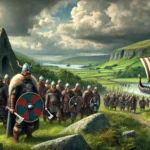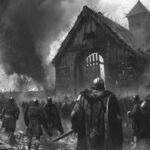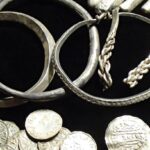While the male gods may steal the show in most Norse myths, Asgard had its fair share of Norse goddesses.
Principal among them was the Norse goddess Frigg, also sometimes called Frigga, who was the queen of Asgard, Odin’s wife and the mother of Balder, the favourite son.
As this description shows, Frigg was predominantly known through her relationship to men as a wife and mother. Nevertheless, Frigg was an important Norse goddess in her own right.
Beloved One
Frigg, or Frigga, means beloved in Old Norse, and is probably a reference to her role as the consort of Odin, the king of the gods. But this was not her only function.
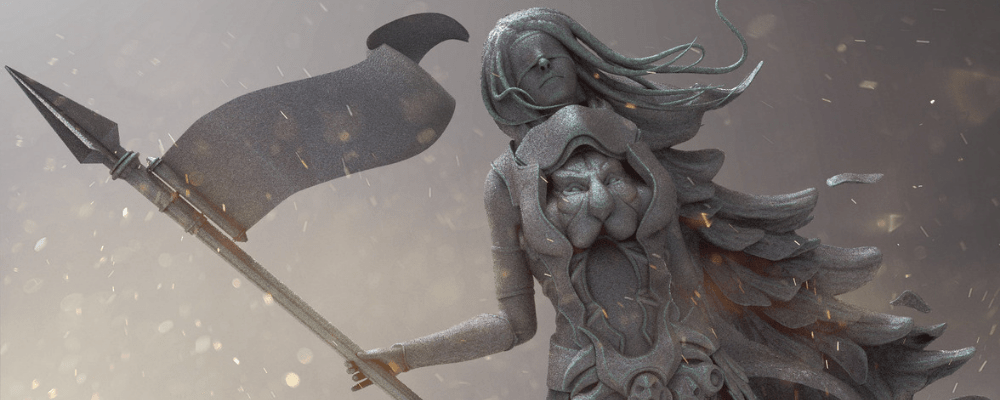
Frigg was also a sky goddess and a Norse goddess of the moon, but her main role was as the Norse goddess of the household, linked with motherhood, love, fertility, marriage and the domestic arts.
In terms of domestic life Frigg, a mother herself, may have helped some women to have children. According to one source, a barren king and queen prayed fervently for children, and it was Frigg who heard their prayers and took the issue to Odin.
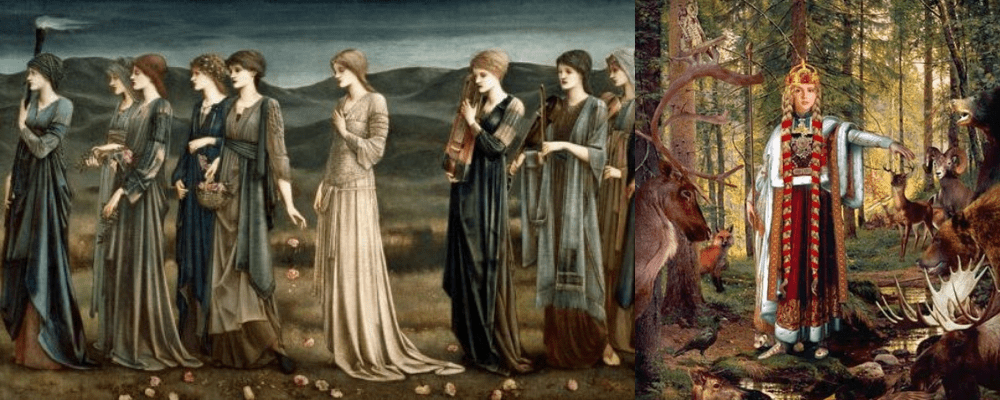
As a domestic goddess she was also associated with domestic arts such as spinning, and according to some stories, Frigga wove the clothes of the gods from the wool of the cloud sheep. Frigga’s symbols were the spinning wheel, mistletoe and silver.
But, as the queen of Asgard, Frigg’s power was more than just that of a mother and household matron. For example, she was also the lady of the hall, and it was her duty to carry the mead horn around at feasts. Considering the important role of feasting in diplomacy, Frigga was also associated with this art, and the Norse goddess was called on by leaders to ensure smooth and beneficial negotiations.
Finally, Frigg is thought to have been able to see the fate of all beings, but she chose never to speak of what she saw. It is said that Frigga saw the fate of both her son Balder and her husband Odin, but she seems to have been powerless to change the course of events.
As the Norse goddess of the home, it is no surprise that Frigg was one of the Norse goddesses most venerated by the Vikings.
She is often described as the most important Norse goddess in the Asgardian pantheon, and, aside from Odin himself, she alone was able to sit in Odin’s throne which allowed him to look out over the nine worlds and see all things. The force of her importance is preserved in the English word Friday, which is derived from Frigedaeg, which means ‘Frigg’s day’.
Frigga and Freya
Considering how important Frigg was as a Norse goddess, it is a bit surprising that so little is known about her. One theory for about this is that in pre-Viking times, Frigg and Freya were a single goddess, and that they were split into two for some reason. This would explain the many similarities between the Norse goddesses Frigg and Freya.
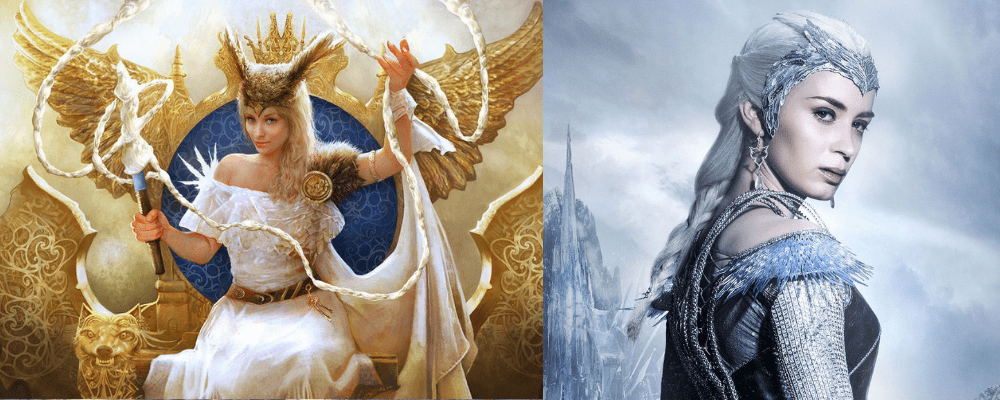
Freya was also a Norse goddess of love, but of a more sexual nature. Freya’s name simply means ‘lady’ in Old Norse, which also places her as a kind of matron. Freya was also associated with ideas of fate, as she practiced Seidr magic, which involves discerning the course of fate and working within its structure to bring about change.
Finally, Freya was closely linked with Odin, Frigg’s husband, who also practiced Seidr. Also, just as Odin took the souls of fallen warriors to Valhalla, Freya took the souls of fallen warriors to her own hall.
If Frigg and Freya were originally one and the same, this would explain why the Norse goddess Frigg has so little backstory, as this was largely given to Freya.
It is notable that Freya was not in fact one of the Aesir gods, but from the rival race of Vanir gods, and was sent to live in Asgard as a hostage. Perhaps Frigg was also not a native Aesir god, and married Odin to form an alliance. But this is only speculation, as the details of her origin are unknown.
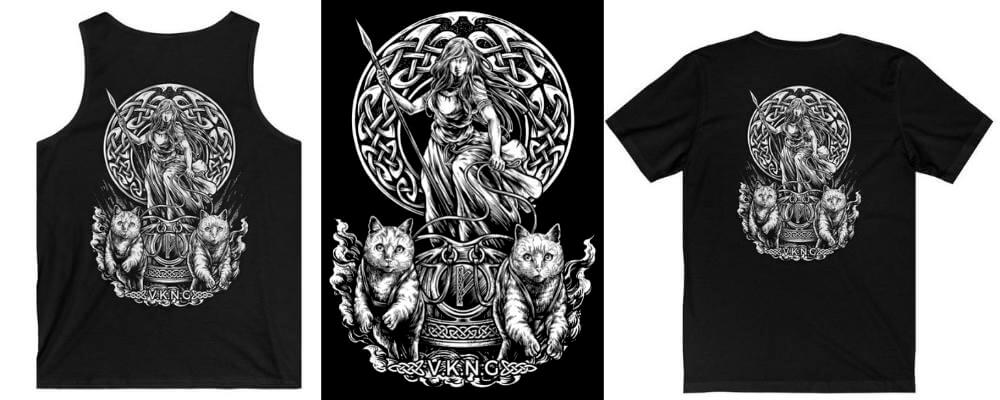
Mother of Balder
As the ideal wife, Frigg was also a mother, but it is important to note that just because she was the wife of Odin does not signify that she was the mother of all his children.

Notably, she was not the mother of Thor, who Odin had with the giantess Jord. But Frigg was the mother of Balder, Hor, probably Bragi, the asgard bard, and possibly some other lesser known Norse deities.
The most famous of Frigg’s children was Balder, the god of light, who was said to be so beautiful and kind that he was the most beloved being in the Norse cosmos. Frigg was naturally preoccupied with keeping her son safe, a preoccupation that may have been fuelled by her gift of foresight.
In order to protect her son, Frigga went to everything that existed in the Norse cosmos and secured a promise from them that they would never hurt, or assist in hurting her son.
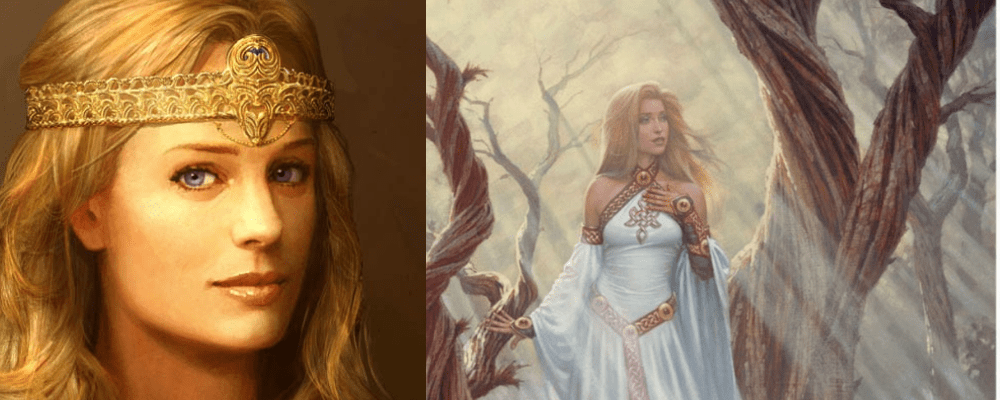
This made Balder practically invincible. This amused the gods greatly, who made a game of throwing dangerous objects at Balder to watch them bounce off him harmlessly.
Loki, always a troublemaker, went to Frigg one day in disguise and asked the Norse goddess if she had really secured promises from everything in the cosmos. Frigg, not suspecting any danger, said that she may have overlooked the humble mistletoe plant, but it is so innocent, the Norse goddess did not see the need to press the matter.
Loki immediately made a dart out of mistletoe. He then approached Balder’s own brother Hoor and asked him why he did not participate in the game of throwing things at Balder. Hoor said that he never took part because he is blind. Loki offered to help him join in the fun, and placed the mistletoe dart in his hand. With Loki’s help, Hoor threw the dart at Balder, which pierced him through the heart, killing him.
Unwilling to accept her son’s death, the Norse goddess sent an emissary to Helheim in order to bargain with Hel for the soul of her son. As Balder did not die in battle, he was sent to Helheim, rather than finding himself in his father’s domain of Valhalla.
Hel agreed to return Balder to his family as mentionned in many eddic poems, on the condition that everything in existence weep for him, showing that he was as beloved as the Aesir claimed. Again, Frigg beseeched everything in existence to weep for her son, and they did so, with the exception of one giantess, thought to have been Loki in disguise.
Consequently, Balder is cursed to spend eternity in Helheim, until Ragnarok when many of the dead will march on Asgard, and Balder will be able to fight alongside his family.
The Ideal Mother?
While Frigg seems like she was the ideal mother to Balder, the Norse goddess does not appear to have been so loving with her other children. Loki was chained to a rock with a poisonous snake dripping venom onto his face for his role in the death of Balder.
But Hoor, who was tricked into participating in the death of his brother, was also killed. Moreover, Frigg was probably also the mother of Bragi, whose bravery she criticises. In one story Frigga is arguing with Loki and claims that he would not dare speak to her in that way if she still had a son as brave as Balder.
Handmaidens of Frigg
Frigg had her own hall called Fansalir, where she was attended by a number of handmaidens, that were also Norse goddesses. Primary among them were Fulla, Gna and Hlin.
The virgin Filla attended to Frigg’s ashen box and footwear and was a favourite of the Asgard queen and knew all her secrets. Gna was Frigg’s most trusted messenger and ran errands for her across the nine worlds. Hlin, which means protector, was sent by Frigg to protect people on her behalf.
While the role of Frigg in the Ragnarok apocalypse is not recorded, it is likely that she fought and died alongside the other Aesir gods.
It is also likely that she foresaw the death of her husband Odin, as according to one story she sent Hlin to protect Odin. The death of Odin is sometimes referred to as Frigg’s second sorrow, with her first sorrow being the death of her son Balder. As such, while Frigg is clearly a Norse goddess of happiness and household, her tale is also full of sorrow.
